




Welcome to Year 10
Curriculum Overview
Academic Program | Introduction
Academic Program | Overview
• Learning Pathways
• Whole year subjects
• Worldview
• Experiential
• Further Criteria
• Subjects that have an application process
• Levies
• Time impact
VCE Acceleration
• Victorian Certificate of Education (VCE)
• Subject Acceleration
Learning Enhancement
Enrichment and Extension Opportunities
Subject Selection Procedures
Students study 6 units in each semester. Subjects underlined are VCE acceleration options and would count for 1 unit in each semester. These can be found in the Year 11 and 12 Subject Information Booklet.
English
• Core Skills English
• General English Mathematics
• Core Skills Mathematics
• General Mathematics
• General Mathematics (Essentials)
• Mathematical Methods (by application) Science
• Bodies and Motion
• Chemistry of Life
• Ecology, Biodiversity and Fieldwork
• Gene Science
• Mind and Body
• Test Your Metal
• VCE Biology
• VCE Psychology
• VCE Environmental Science
Worldview (1 unit minimum)
• Christian Education
• Geography
• History’s Greatest Hits
• Politics and Society
• Our World: First Nations (by application)
• Our World: Local Community
• VCE Texts and Traditions
• VCE Geography
• VCE History
Experiential (1 unit minimum)
• Drama
• Outdoor Education
• PE: Coaching and Officiating
• PE: Sport and Exercise Performance
• PE: Sport and Recreation
• VCE Drama
• VCE Outdoor and Environmental Studies
• VCE Physical Education
Arts, Technology and Design
• Art Making and Exhibiting
• Food Studies
• Media
• Product Design: Materials
• Product Design: Textiles
• Systems Engineering
• Visual Communication Design
• VCE Art Making and Exhibiting
• VCE Food Studies
• VCE Media
• VCE Product Design: Materials or Textiles
• VCE Systems Engineering
• VCE Visual Communication Design
Digital Technologies
• Computing
• VCE Applied Computing
Health
• Healthy Living
• VCE Health and Human Development
Humanities
• Law and Economics
• Running a Small Business
• VCE Business Management
• VCE Legal Studies
• VCE Accounting
Languages
• Indonesian
• Japanese
• VCE Indonesian
• VCE Japanese Music
• Music: Sound Explorers 1
• Music: Sound Explorers 2
• VCE Music

Welcome to Year 10 at Christian College Geelong. Our college provides our students a teaching and learning program that prepares them for the future world in which they will live and work as well as preparing them to respond to the challenges that will continue to shape their world. All students are encouraged to become active participants in their own educational journey, as they are given greater autonomy to learn and an increased voice to direct where that learning might take them.
Christian College is dedicated to achieving a high standard of learning outcomes for all our students. The Year 10 teaching and learning program consists of a combination of core and elective subjects, these elective subjects provide opportunities for students to select subjects based on their strengths, interests and career aspirations while preparing them well for Year 11 and 12.
This handbook provides an overview of our curriculum and subject specific information that will assist students to make well informed decisions that support their educational journey.
Please Note: The information contained in this handbook was correct at the time of printing.
At Christian College, we follow the Australian Curriculum from Prep to Year 10, ensuring a comprehensive and consistent approach to education. This curriculum provides a clear framework for what students need to learn at each stage of their development. Our teaching is designed to not only meet the curriculum standards but also to inspire students to grow spiritually, academically and socially, in line with our values. Through a well-rounded, engaging program, we aim to equip students with the skills and knowledge they need for future success. VET courses are offered in Year 10 and for students who are academically ready, some VCE subjects may be taken in Year 10, this is known as “accelerating”.
More information can be found here: Australian Curriculum

Year 10 students will experience a broad range of subject across each of the key learning areas within our program. Year 10 students will study 12 units over two semesters. Each unit consists of five 50-minute periods per week. All students will study the learning areas of English, Mathematics and Science for the full year with the ability to choose from a range of subject options within these learning areas. Students must choose at least one unit from the Worldview and Experiential categories. These can be studied in Semester 1 or 2.

VCE Vocational Major (VCE VM)
• Students’ study 12 semester length units in Year 11 and 10 units in Year 12 with an applied learning and vocational focus. VET or a School Based Apprenticeship or Traineeship (SBAT) must be included. Structured workplace learning (SWL) is recommended.
• Outcomes based assessment with no external assessment. No ATAR.
Victorian Certificate of Education (VCE, ATAR)
• Students’ study 12 semester length units in Year 11 and 10 semester length units in Year 12. VET is an option.
• Outcomes based assessment with an external examinati on leading to an ATAR for direct university entry.
• May include Vocational Education & Training (VET)
Vocational Education and Training (VET) Other VET Certificates
• English, Mathematics and Science will each count for one unit in each semester.
• Japanese or Indonesian – must be taken as a whole-year subject and thus count as one unit per semester.
• VET is a two-year course. VET in Year 10 is a whole year subject and will count as one unit in each semester.
• Each VCE Unit 1 & 2 subject is a whole-year subject and will count as one unit per semester.
Christian College is grounded in the Christian faith as expressed in God’s Word. Christian Education, Geography, History and Our World courses have been designed to provide students with an opportunity to view the world through a Christian Worldview lens, whilst still applying the academic rigour necessary to prepare students for VCE pathways in the respective subjects.
This Christian worldview helps us in our interactions with others, understanding the past and present, caring for our environment and seeking to make a difference in the lives of others.
Worldview requirements
• Students must choose one Worldview unit in Semester 1 or 2
• Students may choose multiple units in the Worldview domain
Physical activity and expression enable students to become healthy, resilient, confident and competent individuals. Physical Education, Outdoor Education and Drama courses each provide students with opportunities to experience learning in a practical environment.
These subjects have been designed to support and enhance student wellbeing, as well as develop collaborative skills through small group and team participation.
Experiential requirements
• Students must choose one Experiential unit in Semester 1 or 2
• Students may choose multiple units in the Experiential domain
Further criteria
• Students cannot choose both a Year 10 unit and its VCE Unit 1 & 2 equivalent. For example: Running a Small Business and VCE Business Management Units 1 & 2 is not a valid choice.
Several Year 10 subjects require students to submit an application before they will be approved for enrolment. This may be due to a limit on the number of students able to complete that study, or because we want to ensure students are prepared for the high academic demand they will encounter.
The subjects are:
• Mathematical Methods
• Our World: First Nations
• VCE acceleration
Application forms will be available on the Senior School Hub after the Online Senior School Pathways Information Session on Wednesday, June 25. Applications for each of these subjects are due Friday, August 15.
Some subjects have additional costs that are not included in the normal College tuition fees and require upfront payment.
These include:
• Subjects with overnight excursions that involve accommodation expenses and other travel costs.
• Subjects that have significant resource and/or equipment purchases.
• Subjects that require a digital subscription.
Where a student enrols in a subject with a levy amount listed under the unit description, this cost is typically added to College tuition fees at the start of the relevant semester.
Some subjects include excursions that run for a whole day or camps/trips that involve multiple days away from school.
Such experiences provide students with rich learning opportunities beyond the classroom. However, parents and students are encouraged to consider the impact that extended absences can have on learning in other subjects.
For this reason, we have identified those subjects in Year 10 that have a time impact.
Students need to be aware of their responsibility to keep pace with the learning and assessments in those subjects that they will have missed whilst absent from school. Having knowledge of this in advance can assist with student wellbeing and organisational management.

Victorian Certificate of Education (VCE)
The VCE is a two-year senior secondary qualification that provides a pathway to tertiary studies, employment, apprenticeships and TAFE.
The VCE may also be combined with a Vocational Education and Training [VET] course where students will complete an accredited course of study in a vocational area of interest which is credited towards their VCE.
It is possible for Year 10 students to undertake a VCE Unit 1 and 2 subject or VET course as part of their course selections. This may lead to a Unit 3 and 4 study in Year 11, subject to approval.
Students considering an accelerated VCE study should seek advice from their current teachers and consider the criteria for acceleration as described in the next section.
More information regarding the VCE program and the VCE Vocational Major (VCE VM) can be found in the Year 11 and 12 Subject Information Booklet.
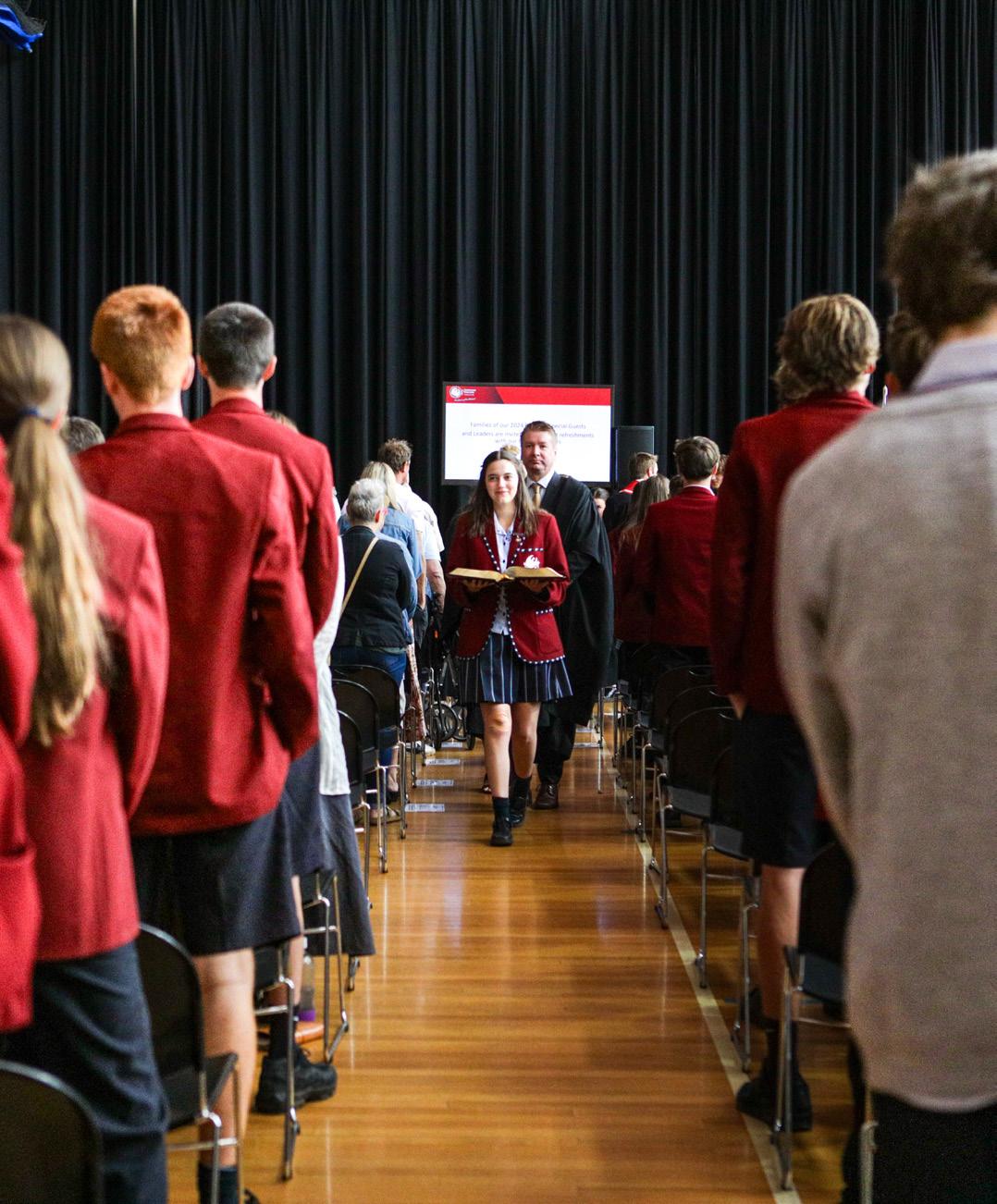
A student ‘accelerates’ when they undertake a Unit 1 and 2 VCE subject in Year 10. There are a number of advantages to undertaking an accelerated subject in Year 10 including:
• Helps students gain exposure to the academic expectations of the VCE.
• Provides students with two units that count toward successful completion of VCE.
• Allows for completion of a Unit 3-4 subject in Year 11 which can assist with tertiary entrance requirements (ATAR).
• May lead to an option of completing a University level class in Year 12.
Acceleration may be granted following consideration of a student’s capacity to successfully complete a VCE subject in Year 10, as well as availability of places in classes and timetabling constraints. It is also important that the choice of an accelerated subject fits a student’s current pathway planning. It should be noted that there will be increased demands upon the student in accelerated subjects. To be approved for acceleration, a current Year 9 student will therefore need to demonstrate:
• Attendance rate at 80% or higher.
• High levels of self-management, organisation, time-management and self-discipline.
• Consistently high achievement across core studies in the previous year and semester one, this includes an average of 75% or higher across all subjects.
• A mature approach to learning and College life in general.
Acceleration applications require careful consideration from students and families and should be discussed with Careers Development Practitioners, subject teachers and Year 9 Year Level Coordinator.
Acceleration subjects can be identified throughout the Year 10 Subject Information Booklet as those underlined. Further information regarding subject-specific criteria, application forms and acceleration options, will be available on the Senior School Hub.
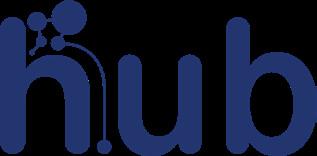

At Christian College, we are proud to offer an inclusive and supportive learning environment where every student is encouraged to thrive—academically, socially, and emotionally. In the Senior School, we recognise that each student’s journey is unique, and we are committed to providing the right support to help them achieve their personal best.
Our extensive Senior School curriculum is designed to cater to a wide range of skills, interests, and pathways—whether students are preparing for tertiary education, vocational training, or entering the workforce. Our experienced teachers use a variety of teaching strategies and engaging learning experiences to support meaningful learning for every student.
For students with identified learning needs, support is available at each campus through dedicated Learning Support Coordinators and a team of caring and skilled Educational Support Officers (ESOs). This team works closely with campus leaders, classroom teachers, parents, students, and external professionals (such as allied health providers) to ensure that reasonable adjustments are thoughtfully planned, implemented, and regularly reviewed.
At the Senior School level, students may be supported through a range of tailored measures including Individual Education Plans (IEPs), in-class support from ESOs, and Special Provisions for assessment, where appropriate. These supports aim to remove barriers and ensure students can demonstrate their learning in ways that reflect their true capabilities.
Together, these supports reflect our commitment to empowering every student to participate fully in their education and to pursue their future with confidence and purpose.
At Year 10, we believe in providing opportunities that go beyond the classroom, allowing students to deepen their knowledge, explore new interests, and challenge themselves in exciting ways. We encourage all Year 10 students to get involved and take advantage of these opportunities to enhance their learning journey, build new skills, and challenge themselves to reach their full potential.
• Reading and writing competitions
• Australian Mathematics competition
• Deakin Science and Engineering challenge
• Grok Cyber competition
• Student Leadership
• Language competition
• Christian College Geelong Art Exhibition
• Japanese and Indonesian Study tour
• Christian College Geelong Choir
• Robocup competition
• Plain Speaking competition
• GISSA competition
Please note: Some opportunities are for selected students
Students will complete their 2026 subject selections online. Students will select their subjects for each semester according to the following: Select one unit of English from the options available.
one unit of Mathematics from the options available.
one unit of Science from the options available.
Select at least one unit from the Worldviews domain. This can be selected in semester 1 or semester 2.
Select at least one unit from the Experiential domain. This can be selected in semester 1 or semester 2.
Select remaining units from Electives and/or VCE Acceleration.
The Christian College subject selection process is conducted online.
On Friday 29th August students will receive an email containing the link to their subject selection preference form.
The online subject selection system will remain open until 9am on Sunday 7th September, allowing sufficient time for thoughtful consideration of preferences.

At Christian College, we strive to accommodate all student preferences when it comes to subject choices. We understand the importance of pursuing subjects that interest and inspire you, and we aim to provide as many of these preferences as possible. However, due to various factors such as class sizes, resources, and scheduling, it may not always be possible to offer every subject preference for every student.
While we will do our best to match your choices, there may be times when adjustments need to be made. We appreciate your understanding and flexibility as we work to create a balanced and enriching educational experience for everyone.
Wednesday 25th June
Wednesday 25th June
Wednesday 30th July
Friday 15th August
Friday 29th August
Sunday 7th September
Online Information Session – Senior School Pathways (VCE and VCE VM)
Applications open for
• Year 10 Methods
• Year 10 Our World
• Year 10 Accelerations
Subject Information Evening
Applications close for
• Year 10 Methods
• Year 10 Our World
• Year 10 Accelerations
Online Subject selection link sent to students college email Subject selections open Subject Selections close
Tuesday 4th November Orientation Day
Friday 7th November
Friday 7th November
Monday 1st – Friday 5th December
Families informed of allocated subjects Booklist sent to families Transition week


To learn more about the Year 10 Curriculum feel free to reach out to the contacts below.
Role
Deputy Principal – Teaching and Learning
Director of Teaching and Learning 7-12
Director of Teaching and Learning P-6
Head of Senior School
Deputy Head of Campus – Teaching and Learning
COLLEGE FACULTY COORDINATOR
Christian Ed
Name Contact
Rick Geall
Drew Oliver
Julie Shutie
Elissa Huddart
r.geall@ccg.vic.edu.au
d.oliver@ccg.vic.edu.au j.shutie@ccg.vic.edu.au
e.huddart@ccg.vic.edu.au
Trish Saffin t.saffin@ccg.vic.edu.au
Name Contact
Christian Ed Coordinator 10-12
Digital Technologies
Director of Digital Learning Faculty
Distance Education
Distance Education Coordinator
English
English Coordinator 10-12
Health and Physical Education
HPE Coordinator 10-12
Humanities
Humanities Coordinator 10-12
Languages
Language Coordinator 10-12
Maths
Maths Coordinator 10-12
Music and Performing Arts
Music Coordinator 7-12
Drama Coordinator 5 – 12
Outdoor Education
Outdoor Ed Coordinator 8 – 12
Science
Science Coordinator 10-12
Sport
Sport Coordinator 10-12
VCE
VCE Coordinator
VCEVM and VET Coordinator
Visual Art, Technology and Design
Visual Art, Technology, Design Coordinator 10-12
Nicole Riddle
Brendan Vanderkley
Francine Chard
Emma McIntyre
n.riddle@ccg.vic.edu.au
b.vanderkley@ccg.vic.edu.au
f.chard@ccg.vic.edu.au
e.mcintyre@ccg.vic.edu.au
Andrew Tucker a.tucker@ccg.vic.edu.au
Alice McKay
a.mckay@ccg.vic.edu.au
Jess Bijaksono j.bijaksono@ccg.vic.edu.au
Leanne Doran
l.doran@ccg.vic.edu.au
Scott Jolley s.jolley@ccg.vic.edu.au
Taylah Broad t.broad@ccg.vic.edu.au
Rob Moore r.moore@ccg.vic.edu.au
Rebecca Bartlett r.bartlett@ccg.vic.edu.au
Andrew Tucker a.tucker@ccg.vic.edu.au
Daniel Fanning
d.fanning@ccg.vic.edu.au
Kerryn Fearnsides k.fearnsides@ccg.vicedu.au
Steve Sobey s.sobey@ccg.vic.edu.au
The study of English at Senior School is a requirement in all chosen pathways. We have many options to suit students’ interests and ability. At Year 10 students must choose 2 units across the year – these can be from any of the options listed below.
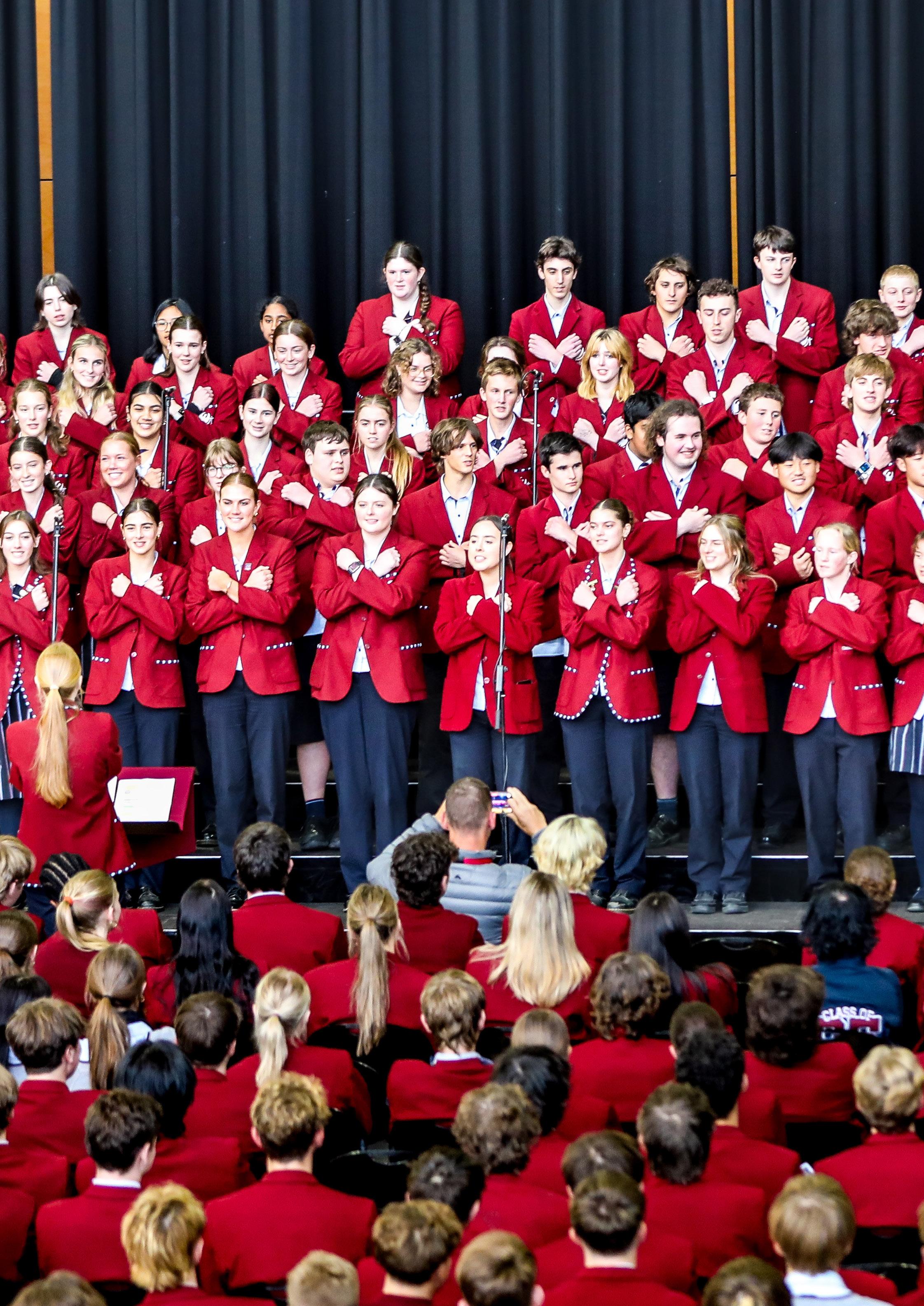
The study of English at Senior School is a requirement in all chosen pathways. At Year 10 students must choose 2 units across the year.
The study of English at Senior School is a requirement in all chosen pathways. We have many options to suit students’ interests and ability. At Year 10 students must choose 2 units across the year – these can be from any of the options listed below.


Core Skills English (Whole year: 2 units)
The course will suit a learner who finds English a challenging subject and wants to further develop their essential literacy skills. This learner may also want to pursue more of a vocational pathway and work towards developing their Vocational Literacy skills.
This course has a focus on developing students’ skills in writing, comprehension, critical thinking and speaking. Students will be supported to make personal decisions about the focus of their studies and the way they present their understanding of studied texts and issues. The course is designed to develop students’ confidence in reading and communicating ideas and is an ideal course for a pathway into vocational studies.
It is important to note that this is designed as a bridging course into the VCE VM pathway. Students wishing to pursue the VCE pathway should select General English to ensure they develop the skills required for a successful VCE completion.
General English (Whole year: 2 units)
General English encourages the extension of written and verbal language skills by developing the capacity of students to speak, comprehend and write effectively for a range of purposes and audiences.
Students undertake units of work that develop their competence in oral communication, listening, critical and creative writing, reading comprehension, language and argument analysis, and the appreciation of a range of texts.
This course develops and fosters students’ skills and competencies in responding to and creating texts, expands their familiarity with language features, and explores ideas and concepts specific to VCE English studies.
NOTE:
To assist in placing students in the most appropriate English pathway, you can consider using:
• The student’s current English teacher can make recommendations based on their knowledge of the student’s progress throughout Year 9, including their achievement in English assessments
• Consideration of a student’s progress against benchmarked standards such as NAPLAN
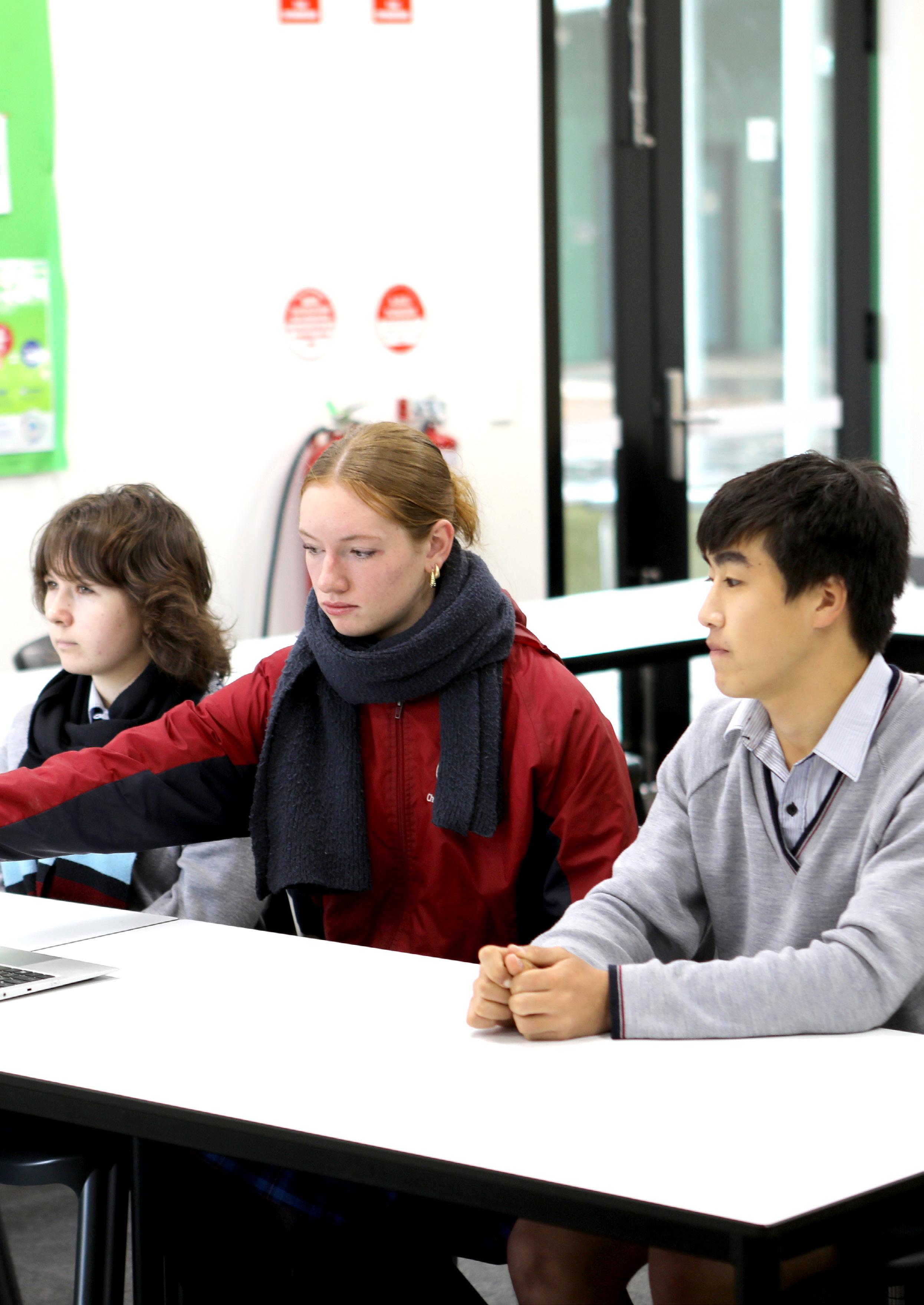
The study of Mathematics at Senior School is a requirement in all chosen pathways. At Year 10 students must choose 2 units across the year –these can be from any of the options listed.

General Mathematics (2 units)
This subject is designed to consolidate and build on learning from Year 9 studies, in the areas of applied and practical Mathematics.
It will prepare students to follow a pathway towards VCE General Mathematics or VCE Foundation Mathematics. Topics are drawn from the areas of Statistics (displaying, describing and analysing data), Measurement (trigonometry and 3D shapes), Algebra (problem solving and financial maths), and Probability (describing and interpreting results of probability experiments).
As well as preparation for VCE Mathematics, the numeracy and problem solving skills that are developed in General Mathematics benefit the learning in other VCE subjects including, but not limited to, Physical Education, Health and Human Development, Accounting, Computing, Geography and the Sciences. The practical nature of many of the topics covered in General Maths also renders them useful in everyday life and a wide variety of occupations.
General Mathematics - Essentials (2 units)
This course is identical to General Mathematics in the units of work that are completed and the assessments that are undertaken. The aims of this strand of General Mathematics are to build basic skills and confidence in the learning of Mathematics amongst students who have experienced some difficulties in these areas in previous studies.
The learning in General Mathematics Essentials will be scaffolded to have a stronger focus on supporting the development of the essential skills and knowledge that students encountered in Years 7-9 Mathematics. Additionally, there will be an explicit focus on routines and organisational strategies that are necessary to support students in their learning.
NOTE:
To assist in placing students in the most appropriate maths stream, you can consider using:
• The student’s current Maths teacher can make recommendations based on their knowledge of the student’s progress throughout Year 9, including their achievement in Maths assessments
• Consideration of a student’s progress against benchmarked standards (e.g. NAPLAN, Standardised Testing and OnDemand Testing).
Core Skills Mathematics (2 units)
Core Skills Mathematics suits a learner who wants to pursue a vocational pathway and would benefit from an applied learning approach to their studies. In this course there is a strong emphasis on the use of mathematics in practical contexts and everyday life in the community, work and study.
Students will develop basic mathematical skills that are then applied to real-life projects such as construction, cooking, designing, art, running a small business and data analysis of sporting teams. Students will be supported to make personal choices about the focus of their projects based on their interests. The course is designed to develop students’ confidence in mathematical calculations, their interpretation and application.
This course will prepare students to follow a pathway towards future vocational studies, such as the Vocational Major, which may include the study of VCE Foundation Mathematics.
It is important to note that this is designed as a bridging course VCE VM pathway. Students undertaking this subject will be less prepared for the expectations and tasks typical of VCE Mathematics.
Mathematical Methods (2 units)
This subject is an advanced Mathematics course, designed to further develop and extend students learning in mathematics, with a focus on theoretical concepts and their applications.
It provides an opportunity to explore mathematics in more detail and will prepare students to follow a VCE pathway towards Mathematical Methods and Specialist Mathematics. Topics are drawn from the areas of Number (surds and indices), Algebra (linear and quadratic algebra and graphing, circular functions, logarithms and exponentials), Measurement (trigonometry and gradient functions), Probability (conditional probability, independence of events, permutations and combinations), as well as exploring deductive and algorithmic reasoning.
Please Note: Students wishing to study Mathematical Methods Unit 1 & 2 are recommended to complete the Year 10 Mathematical Methods course. Students who have not completed the Year 10 Mathematical Methods course, may need to undertake significant bridging activities in order to develop the appropriate background skills required for entry into VCE Mathematical Methods.
As well as preparation for VCE Mathematics, the advanced numeracy and problem solving skills that are developed in Mathematical Methods benefit the learning in other VCE subjects including, but not limited to, Physics, Chemistry and Computing.
This subject is by application.
Please see Senior School Hub for application process.
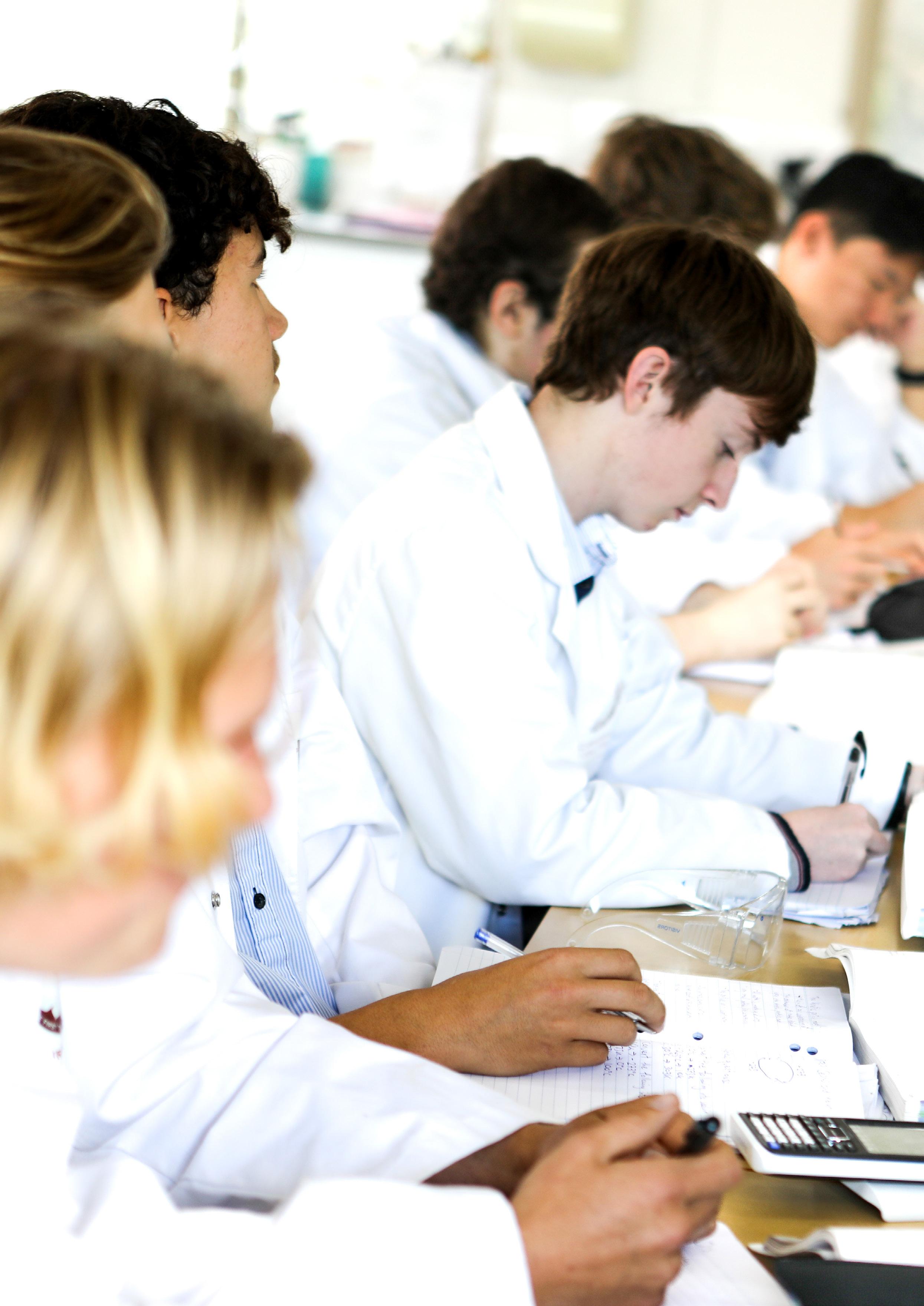
The study of Science at Senior School is a requirement in all chosen pathways. A range of options are available to allow students to pursue areas of particular interest. Student choices should be based on what they enjoy and are curious about and should also be guided by their future pathways. At Year 10 students must choose 1 unit in each semester.

Bodies and Motion (1 unit)
What will allow us to run faster in a 100m sprint? Why do we run out of breath quickly when we sprint but can jog for a much longer period of time? Why does providing padding around a goal post make a serious injury less likely to occur from a collision?
In this unit students tackle these types of questions from two perspectives: physics and biology. The physics topics examine the way people move and the reasons for that motion. This section of the course utilises several mathematical formulas and calculations in investigations of speed, acceleration and momentum.
The biology topics look at body systems, respiration and the production of energy as well as different types of muscles. Students will also carry out an investigation into motion and research a question of interest.
Bodies and Motion provides a solid foundation for future study of VCE Physics, VCE Biology and VCE Physical Education.
Ecology, Biodiversity & Fieldwork (1 unit)
What is the science behind the environment and living organisms? How do scientists conduct research and undertake fieldwork? Why is diversity so important to our environments? In this unit students will look at the ecology of the local environment – that is, the branch of biology that looks at the relationships of organisms to one another and their physical surroundings. Students will look at feeding relationships, food webs and the importance of them in sustaining life.
Students will undertake fieldwork – looking at methods used to collect, record, analyse and communicate data. They will learn about indigenous and modern day practices that are used to help maintain healthy ecosystems as well as how species adapt to best survive in their environment. Ecology, Biodiversity and Fieldwork provides a solid foundation for future study of VCE Environmental Science.
Chemistry of Life (1 unit)
What are the chemical reactions that keep us alive? Why do we need to eat food? Why do we need a daily source of some vitamins but not others? What are the differences between fats, carbohydrate and protein molecules?
In this unit students investigate a range of chemical structures as well as the ways they are involved in sustaining life. Topics include different types of atoms and elements, how they form chemical bonds with each other and how they react to make new substances.
Students learn about the organisation of cells in living things followed by investigations of proteins and carbohydrates. They will carry out practical investigations relating to action of enzymes, as well as exploring factors affecting rates of reaction.
Chemistry of Life provides a solid foundation for future study of VCE Chemistry and VCE Biology.
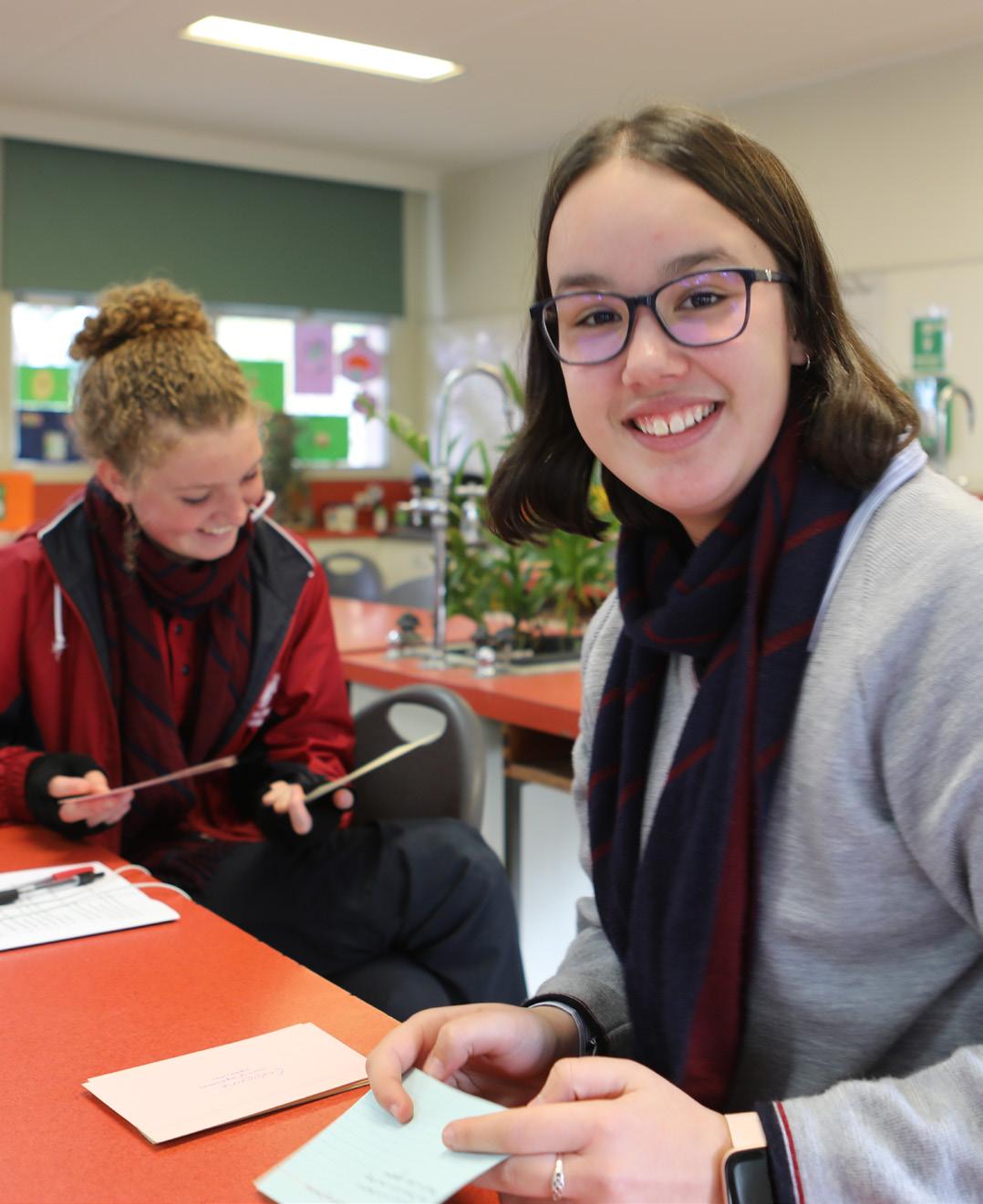

Gene Science (1 unit)
What is the difference between DNA, chromosomes and genes? How are characteristics passed on from parent to offspring? What tools do humans use to manipulate DNA? How do organisms change over time?
In this unit students investigate questions like these from a biological perspective. Students look at the structure and function of DNA and how it codes for the proteins that control the characteristics of organisms. They learn about Mendelian genetics and use Punnett squares to predict the outcome of genetic crosses as well as read pedigrees. They explore different DNA technologies and the techniques used to manipulate DNA, as well as learning about Darwin’s theory of natural selection and evidence for evolution.
Gene Science provides a solid foundation for future studies of VCE Biology.
Test Your Metal (1 unit)
What makes a metal a metal? What are the properties unique to metals? What makes metals so useful in our everyday lives?
The use of metals has had such an impact on humans that we refer to whole eras of history as the iron or bronze age. Metals are still incredibly important in the modern world as technology demands increase and we look for alternative sources of energy. In this unit, students investigate the chemistry behind metals which can be used to explain their properties.
They investigate the reactivity of a selection of metals and understand how differences can lead to the production of electricity. In physics -based topics, students will build motors and generators to increase their understanding of how to exploit electromagnetic effects.
Test your Metal provides a solid foundation for future studies in VCE Physics and VCE Chemistry.
Mind and Body (1 unit)
Why do people think, feel and behave the way that they do? What’s the link between our physical brain and nervous system, and our mind? What brain structures influence the formation and development of our emotions, personality and intelligence? What does it mean to be mentally healthy and how does resilience influence this? Why is Psychology considered a science and what does a career in Psychology look like?
In this unit, students investigate these types of questions through a scientific lens and explore how biological, environmental and social influences impact on the development of who we are and how we think.
Mind and Body provides a solid foundation for future studies of VCE Psychology.

Acceleration
It may be possible for highly capable and motivated students to accelerate to complete Units 1 and 2 Biology, Psychology or Environmental Science in Year 10. This will be subject to criteria and minimum standards achieved in Year 9. Accelerating students will be required to choose an additional Science unit from the Year 10 options to complete in Year 10.
VCE Biology (Whole year: 2 units)
Unit 1 -
How do organisms regulate their functions?
Students will examine the cell as the structural and functional unit of life, from the single celled to the multicellular organism, including the requirements for sustaining cellular processes.
Unit 2 -
How does inheritance impact on diversity?
Students explore the reproduction and transmission of biological information from generation to generation and the impacts of diversity within the species.
Environmental Science (Whole year: 2 units)
Unit 1 -
How are Earth’s dynamic systems interconnected to support life?
Students examine the processes and interactions occurring within and between Earth’s four systems with a focus on the functioning of ecosystems and their impact on local, regional, and global environmental conditions.
Unit 2 -
What affects Earth’s capacity to sustain life?
Students consider environmental challenges such as pollution, food and water security through examination of their characteristics, impacts, assessment and management. Students undertake a student-designed investigation exploring how science can be applied tp address Earth’s capacity to sustain life.
VCE Psychology (Whole year: 2 units)
Unit 1 -
How are behaviour and mental processes shaped?
Students explore how psychological and social factors influence different aspects of a person’s psychological development and consider interactive influences of hereditary and environmental factors.
Unit 2 -
How do internal and external factors influence behaviour and mental processes?
Students explore the behaviour of individuals and groups and the factors and contexts that have an influence. They investigate the role of social cognition in a person’s attitudes, perception of themselves and relationship with others.

All students must choose at least one unit from the Worldview domain which includes options in Christian Education, Geography, History, Humanities and Our World.

Christian Education (1 unit)
Christian Education explores the deep and difficult questions about the purpose and meaning of life. You will be encouraged to ask big questions like: What is truth? And, if God exists, why is there suffering and evil in the world? Such questioning, coupled with reason and faith, can be a powerful way to discover satisfying answers.
This unit will require you to have a thoughtful and inquisitive mind and use highly developed reasoning skills in order to grasp complex philosophical concepts. Students should therefore have strong English capabilities.
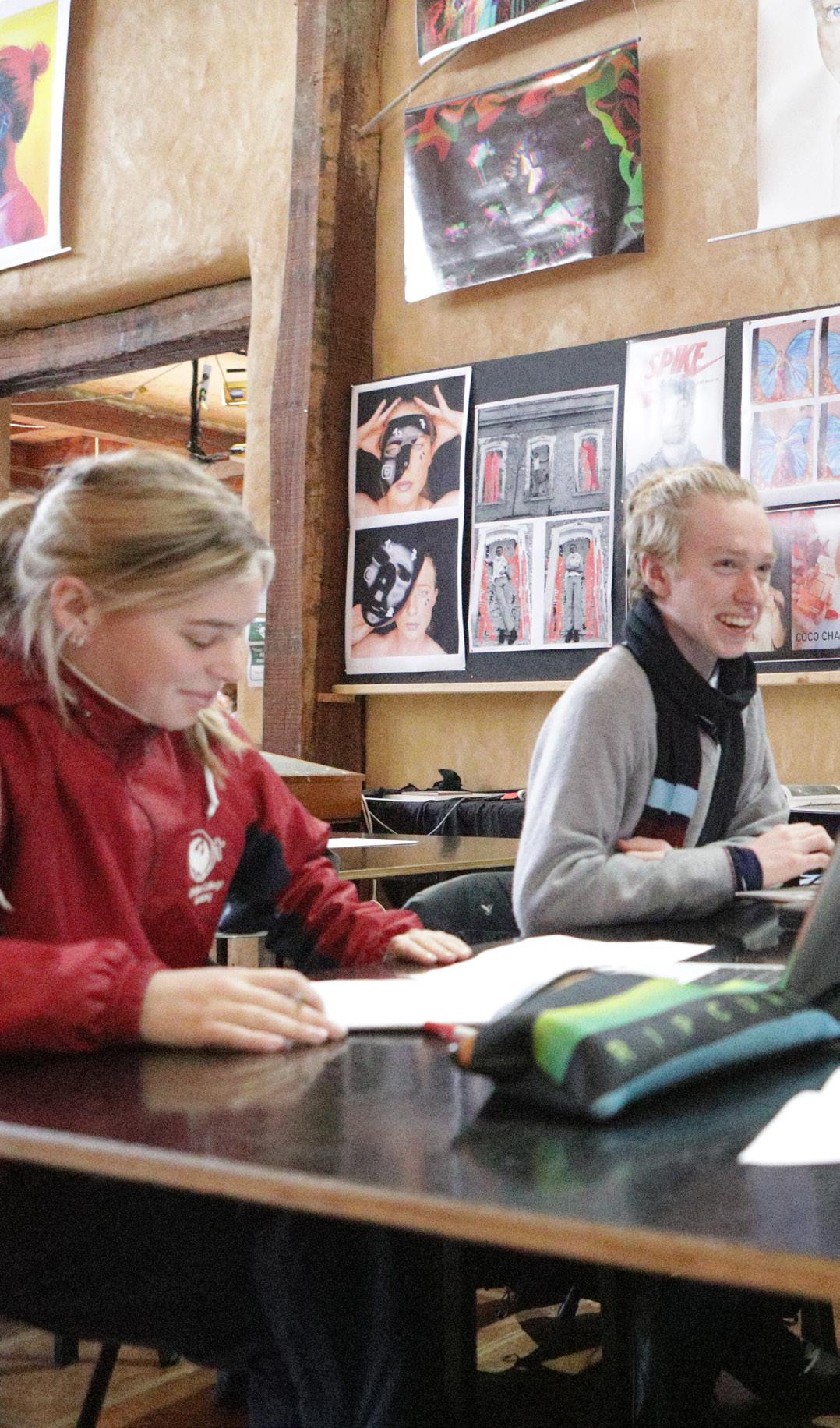
It may be possible for highly capable and motivated students to accelerate to complete Units 1 and 2 Texts and Traditions in Year 10. This will be subject to criteria and minimum standards achieved in Year 9.
VCE Texts and Traditions (Whole year: 2 units) Humanities
Unit 1Texts in traditions
Examine the place of sacred texts and their literary forms within a religious tradition. Explore the importance of sacred texts as the source of a tradition and learn how to interpret and describe their meaning for the earlier and continuing tradition.
The process of searching for and giving expression to the meaning of texts is called exegesis. This unit introduces students to basic methods of exegesis to bring about a deeper awareness of how sacred texts came about, and the meaning of those texts for the religious tradition. The skills of exegetical method are introduced to the students.
Unit 2Texts in society
Study sacred texts as a means of investigating social attitudes on issues such as social structures, justice, authority, the environment, racism, gender, and others. Some of the texts may call for change in attitudes and values; others may call for changes in social, religious, and political institutions. Some texts may justify or support existing social, cultural, religious, and political institutions, works, attitudes and values.

Our World - Local Community (1 unit)
Christian Education
This unit explores a range of current social issues within the context of Jesus’ life and ministry on the earth. In a very practical way we look at issues relating to refugees, homelessness, criminals and justice, and the sick.
As part of the course, students will be required to organise a placement with a local community group, where you will participate in 10 hours of community service across the semester. The course aims to shed more light on the work and person of Jesus, acknowledge how He “made a difference” and explore his continued influence in the world today.
Our World Local Community prides itself on encouraging students to be selfless in their approach to service however we would also like to offer the students the option of considering “The Duke of Edinburgh’s Award” as part of their studies. The statement in the Award: “…explore their full potential and find their purpose, passion and place in the world…” fits well with our School Philosophy and the concept of self-sacrifice.
Our World - First Nations (1 unit)
Outdoor Education
In this unit, students are encouraged to think beyond themselves and their own concerns and see the world through another lens. Students will examine different global standards of living with a case study of First Nations people. They will investigate daily life for First Nation Australians prior to the arrival of Europeans, how it has changed and the current challenges faced. A key part of the program is the study of a specific Aboriginal Language group undertaken through an immersion experience (likely undertaken at Uluru and a remote Aboriginal community, unless changing government restrictions do not allow these options). These experiences help students broaden their perspectives and guide them in understanding their role and responsibilities in creating a more just world. An additional information letter outlining the selection process will be available at the subject selection information evening. Families will also need to attend an information session in term 4. Our World will provide a solid foundation for the study of VCE Unit 2 Global Connections and Unit 3 and 4 Global Politics.
*Travel or exposure to others in this program will be dependent on Government regulations at the time, a possible alternate program may be available.
Time impact: 10-11 days
Central Australia
Anticipated Subject levy: $2500
Charged to Fee Accounts
*All students wishing to undertake Our World: First Nations must complete an application form in the year prior. Places in the subject will be allocated to Semester 1 or 2 at the college’s discretion.
Geography (1 unit) Humanities
This unit has two key themes - Environmental Change and Management, and Human Wellbeing.
In Environmental Change and Management, students explore case studies of current issues impacting our natural world. From deforestation, population growth to pollution, students will examine the challenges and strategies to address these issues. A field trip to a wetland ecosystem will see students will learn about their value, and the issues and solutions related to this ecosystem.
In Human Wellbeing, we explore the various aspects of human geography that influence the quality of life and wellbeing of individuals and communities. Factors explored include average life expectancy, literacy rates and access to healthcare. Two case studies are undertaken: a developing nation and an aspect of wellbeing in Australia.
Geographic knowledge, understanding and skills developed through the study of Geography provide students with a ‘lens’ through which to view the world around us. A Christian worldview acknowledges that all humans have been created with a sense of worth, but also a call to serve others and be custodians of God’s creation. This unit is excellent preparation for VCE Geography.
It may be possible for highly capable and motivated students to accelerate to complete Units 1 and 2 Geography in Year 10. This will be subject to criteria and minimum standards achieved in Year 9.
VCE Geography (Whole year: 2 units)
Unit 1Hazards and Disasters
Students investigate the nature of a range of hazards and the response to specific disasters. Students undertake fieldwork to analyse the way local communities reduce and manage the impacts of hazards and disasters.
Unit 2Tourism
Students explore the characteristics of tourism including its history, categories and global impact. With a focus on sustainability, students undertake fieldwork to investigate local tourism and its various impacts on the environment and local community.

History’s Greatest Hits (1 unit)
Humanities
History’s Greatest Hits is a high-energy journey through the turning points that shaped our world. From ancient Athens to 9/11, we explore moments where power, belief, and big ideas collided—sparking revolutions, empires, and global shifts. The course dives into the rise and fall of civilisations, the clash of faiths, the birth of modern politics, and the thinkers who challenged everything. Perfect for curious minds, bold questions, and students who want to understand how the past continues to shape the present—and their future.
This unit provides excellent preparation for VCE History, and good preparation for VCE Politics and VCE Sociology.
Politics and Society (1 unit)
Humanities
Students investigate current global issues that encourage discussion and debate; recognise and consider multiple perspectives; and reflect on their role as citizens in Australian, regional, and global contexts. When analysing these global issues, students will consider the role of institutions such as the United Nations, regional groupings such as the European Union, powerful states such as the USA and China, and other influential organisations and individuals. Students will consider the varying factors that influence the decisions that global actors make in addressing global issues; the challenges to sustaining a resilient democracy and cohesive society; and the role and power of individuals in affecting national and global issues. Examples of contemporary issues for study: armed conflict, military intervention, refugees and asylum seekers, foreign aid, nuclear weapons, human rights, climate change, artificial intelligence, and overpopulation. This unit provides suitable preparation for VCE Politics, VCE Sociology, VCE History, and VCE Geography.
It may be possible for highly capable and motivated students to accelerate to complete Units 1 and 2 History in Year 10. This will be subject to criteria and minimum standards achieved in Year 9.
VCE Modern History (Whole year: 2 units) Humanities
Unit 1 -
Change and Conflict
Students explore the events, ideologies and movements of the period after World War I; the emergence of conflict; and the causes of World War II. They investigate the impact of the treaties which ended the Great War and which redrew the map of Europe and broke up the former empires of the defeated nations. They consider the aims, achievements and limitations of the League of Nations.
They then focus on the social life and cultural expression in the 1920s and 1930s and their relation to the technological, political and economic changes of the period. Students explore particular forms of cultural expression from the period in one or more of the following contexts: Italy, Germany, Japan, USSR and/or USA.
Unit 2 -
The Changing World Order
This unit explores the following topics: decolonisation and self-determination movements, Terrorism campaigns, Regional conflicts, and/or Social and political movements. Students investigate the nature and impact of the Cold War and challenges and changes to social, political and economic structures and systems of power in the second half of the twentieth century and the first decade of the twenty-first century.
In many societies, individuals and groups emerged to challenge the ways that power structures were organised, distributed and used. Traditional attitudes to race, war, gender, sexuality, religion, the environment and human rights were questioned, challenged and in some cases remained the same and/or changed.
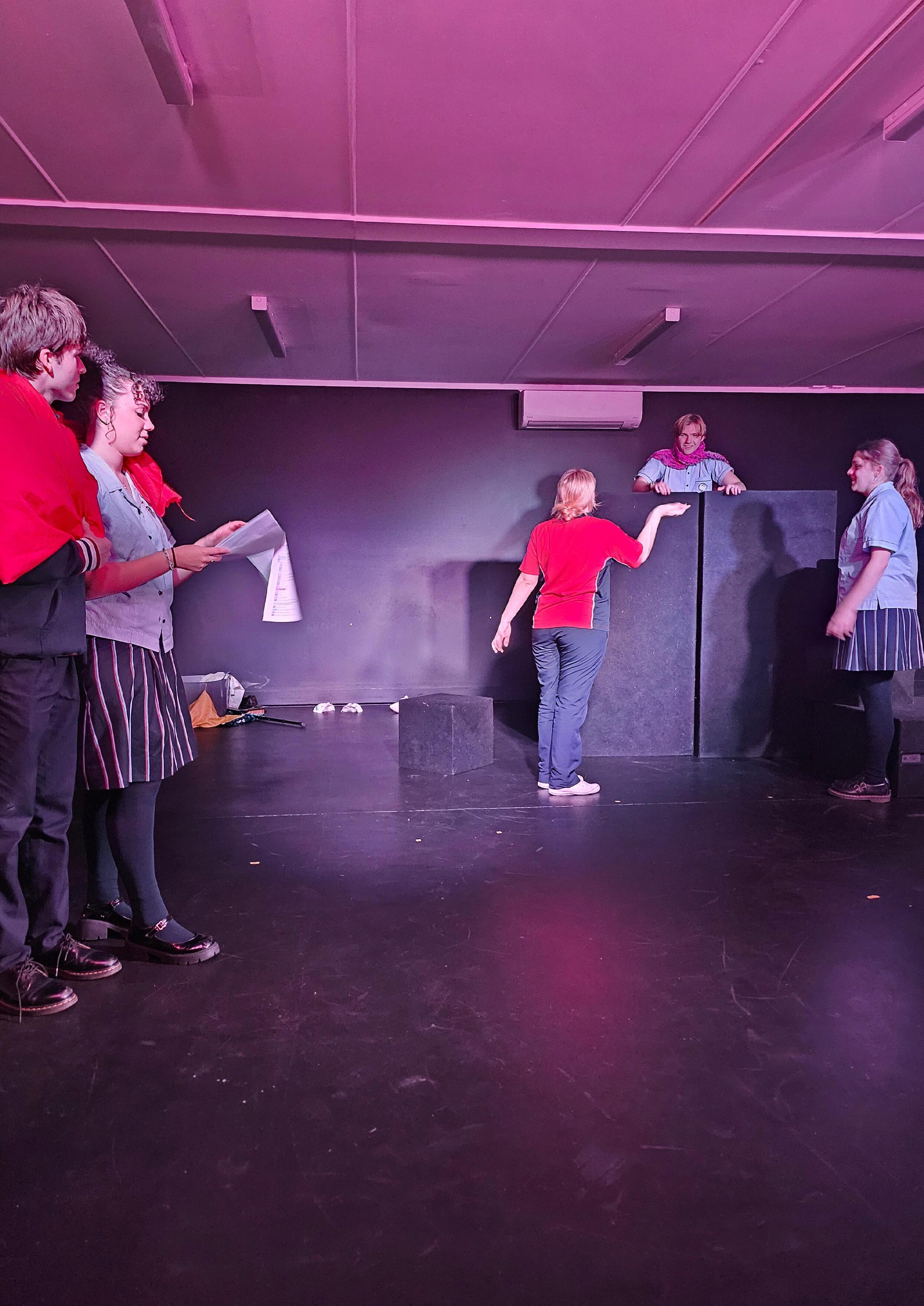
All students must choose at least one unit from the Experiential domain which includes options in Physical Education, Outdoor Education and Drama.

Physical Education
This elective aims to examine the theory and skills associated with effective leadership, coaching and officiating in sport.
Students will have the opportunity to complete a number of Australian Sports Commission courses, including - Community Coaching and Community Officiating General Principles courses.
Students will participate in a variety of practical activities that enhance their ability to coach all ages and abilities while gaining a deeper understanding of the skill acquisition, communication skills, sport-specific skills and effective administration.
Physical Education
This elective aims to extend those students who wish to deepen their knowledge of the systems within the body and the impact they can have on athlete development. Components of this elective will help in preparation for certain aspects of VCE Physical Education Unit 1 and 2 studies.
During this elective, students will participate in practical assessments that relate directly to the theoretical components delivered. This includes development and participation in exercise programs, monitoring of body systems using pedometers and heart rate monitors and investigating training methods to improve performance.
The theoretical components include, food fuels, energy systems, acute and chronic adaptations, training methods and training program development.
Sport and Recreation (1 unit)
Physical Education
This elective provides opportunities for students to examine, and participate in, organised sport and recreational activities to gain a deeper appreciation for lifelong activity participation.
Students will explore: fitness training, resistance training, relaxation techniques, aerobic activities such as walking, jogging and running, ten pin bowling, yoga, pilates, invasion games and ball sports such as volleyball.
The theoretical components include fitness benefits, motivation, lifestyle diseases, nutrition and local sporting and recreation organisations.
It may be possible for highly capable and motivated students to accelerate to complete Units 1 and 2 Physical Education in Year 10. This will be subject to criteria and minimum standards achieved in Year 9.
VCE Physical Education (Whole year: 2 units)
Unit 1 -
The Human body in motion
This subject explores how the musculoskeletal and cardiorespiratory systems work together to produce movement. Through practical activities students explore the relationships between the body systems and physical activity, sport and exercise, and how the systems adapt and adjust to the demands of the activity.
Unit 2 -
Physical Activity, Sport, Exercise and Society
In this subject, students develop an understanding of physical activity, sport and society from a participatory perspective.
Students are introduced to various types of physical activity and the role participation in physical activity and sedentary behaviour plays in their own health and wellbeing as well as in other people’s lives in different population groups.

Outdoor Education (1 unit)
Outdoor Education
This unit investigates a variety of natural environments to understand the unique living and non-living characteristics, their interdependence and the way humans relate to them, while encouraging an appreciation for the environment and ways to contribute to the sustainability of our fragile planet. Students will analyse risktaking activities to gain an appreciation for the role of risk in our daily lives and learn about ways to manage it. Students selecting Outdoor Education will be assigned to either Semester 1 or Semester 2 depending on the other subjects selected. The curriculum engages through hands-on experiences in the outdoors, which include a 3-day journey, day trip and afternoon practical sessions, utilising environments that are available to us in the respective seasons. Students will have the opportunity to participate in flat water canoeing, mountain bike riding, rock climbing, camping, hiking and the possibility of a day trip cross country skiing at Lake Mountain. The Year 10 Outdoor Education elective provides a solid foundation for the study of VCE Outdoor and Environmental Studies.
Studies Units 1 and 2.
Time impact: 3-4 days
Subject levy: $450 Charged to Fee Accounts
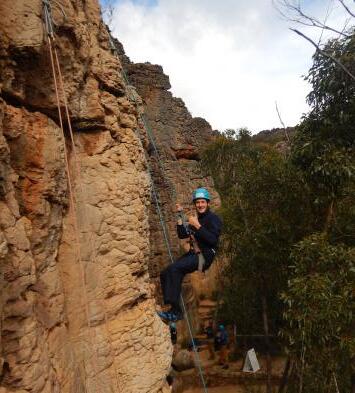
It may be possible for highly capable and motivated students to accelerate to complete Units 1 and 2 Outdoor Education in Year 10. This will be subject to criteria and minimum standards achieved in Year 9.
VCE Outdoor Education (Whole year: 2 units)
Outdoor Education
This unit examines some of the ways in which Indigenous peoples and non-Indigenous peoples understand and relate to nature through experiencing outdoor environments. Learning through experience is key to understanding concepts discussed in this course; therefore, practical components form a compulsory aspect of the unit. This includes a range of activities in the Otway Ranges, hiking in the Grampians National Park and ski touring in the alpine environment. Through these activities, students will explore the ecological, historical, economic and social factors that have shaped our environments over time, including the different ways to understand outdoor environments and the impact of humans on outdoor environments. Students develop skills that promote safe and sustainable interactions with these environments as well as identify and analyse strategies to protect, conserve and manage outdoor environments in a sustainable manner. Unit 1 and 2 Outdoor & Environmental Studies will provide a solid foundation for the study of VCE Units 3 and 4 Outdoor & Environmental Studies.
Time impact: 9 days
Subject levy: $1100 Charged to Fee Accounts

Drama (1 unit)
Unleash Your Creative Ideas: Dramatic Storytelling Awaits!
Ever dreamed of bringing characters to life on stage?
Dramatic Storytelling is your chance to shine! This course is a hands-on exploration of how actors use their voices and bodies to create outstanding characters and captivating stories.
Get ready to:
• Dive into diverse theatre styles: From the classics to the cutting edge, you’ll discover a world of theatrical possibilities.
• Become a master improviser: Think on your feet and create scenes on the spot!
• Craft your own stories: Unleash your inner playwright with scriptwriting activities.
• Embody unforgettable characters: Explore the depths of role development.
• Light up the stage (solo or with a crew): Group and individual performances outcomes let you showcase your talent.
Theatre isn’t just about entertainment; it’s a powerful tool! You’ll learn how theatre practitioners such as Bertolt Brecht used the stage to examine key social issues which aimed to impower audiences to be active participants rather than passive observers.
You devise, develop and present plays that reflect your voice and ideas.
Students will have an opportunity to performance to parents and friends and participate in programs such as ‘The Suitcase Series’ at the Malthouse Theatre Company.
Is this course for you?
Absolutely! Whether you’re an aspiring performer, a future teacher, or simply want to boost your confidence, creativity, and teamwork skills, Dramatic Storytelling is a perfect fit. Plus, it’s a fantastic springboard for those considering VCE Drama.
It may be possible for highly capable and motivated students to accelerate to complete Units 1 and 2 Drama in Year 10. This will be subject to criteria and minimum standards achieved in Year 9.
VCE Drama (Whole year: 2 units)
It is possible for students to study VCE Units 1 & 2 Drama. It would be recommended that students have undertaken 2 terms of study in Drama at Year 9 level.
Introducing performance styles
Students create, present and analyse devised performances that include real or imagined characters. And have the opportunity to present an ensemble performance that reflects their voice and ideas to parents and friends.
Australian Identity
Students create, present and analyse a performance using stimulus from a contemporary or historical Australian context. Students work within an ensemble to devise work and explore the skills required to create a solo piece.


Art Making and Exhibiting (1 unit)
The Visual Arts are critical to how we communicate and express meaning in the world around us. In this unit students will grow as individual artists, developing their own artistic style and have opportunities to explore a range of traditional and contemporary visual art techniques including drawing, painting, printmaking, photography, wearable art, film, or sculpture.
Activities will include experimenting with a variety of mediums and styles to express meaning around a self-chosen theme.
In the studio environment students will analyse connections between visual conventions, practices and viewpoints, identify influences of artistic styles and other artists’ and in students’ own artworks. Students will have opportunities to explore galleries, exhibitions and work with practising artists, gaining an understanding of historical and cultural influences in the Visual Arts.
Year 10 Art Making and Exhibitings is a solid foundation for the study of VCE Art Making and Exhibiting.
Acceleration
It may be possible for highly capable and motivated students to accelerate to complete Units 1 and 2 VCE Art Making and Exhibiting or Food Studies in Year 10. This will be subject to criteria and minimum standards achieved in Year 9.
Unit 1 -
Explore, Expand and investigate
Students explore materials, techniques and processes in a range of art forms. They expand their knowledge and understanding of the characteristics, properties and application of materials used in art making.
Unit 2 -
Understand, Develop and Resolve
Students broaden their investigation to understand how artworks are displayed to audiences, and how ideas are represented to communicate meaning.
Food Studies (1 unit)
Do you know how to make healthy food choices to maintain longevity and a good quality of life?
In Year 10 Food Studies, students explore the dynamic world of food through both theoretical and practical experiences. This subject deepens students’ understanding of food systems, nutrition, cultural cuisines, and sustainable practices. Students engage in hands-on cooking sessions, design briefs, and collaborative projects that develop their creativity, critical thinking, and problemsolving skills. They investigate the sensory and functional properties of food, explore global food influences, and apply safe and ethical food preparation techniques. Highlights include catering for real-life events, multicultural fusion cooking, and Indigenous food experiences. This course empowers students to make informed food choices and equips them with essential life skills for personal and professional contexts.
Unit 1Food origins
Investigate the origins and roles of food through time and across the world.
Unit 2Food makers
Investigate food systems in contemporary Australia, from small-scale domestic to commercial production.

Media (1 unit)
Media inundates us on a daily basis. It is used to inform, influence and persuade us, from the cinema screen, digital devices or print media. In this unit, students will create a variety of digital media that captures a narrative and informs an audience.
Students identify specific features and purposes of media artworks using a range of traditional and contemporary media materials, equipment and technologies.
Activities include evaluating how social, institutional and ethical issues influence the making and use of media artworks and understanding production processes involved in the construction of media texts. Students will manipulate genre and media conventions and shape the technical and symbolic elements for specific purposes, meaning and style. Lessons include applying the knowledge of these key concepts to the planning and construction of media products.
Year 10 Media is a solid foundation for the study of VCE Media.
Acceleration
It may be possible for highly capable and motivated students to accelerate to complete Units 1 and 2 VCE Media and Product Design in Year 10. This will be subject to criteria and minimum standards achieved in Year 9.
Media (Whole year: 2 units)
Unit 1Media Forms, Representations and Australian Stories
Students develop an understanding of audiences and the core concepts underpinning the construction of representations and meaning in different media forms.
Unit 2Narrative across Media Forms
Students analyse the influence of developments in media technologies on individuals and society; design, production and distribution of narratives in the media; and audience engagement, consumption and reception.
Product Design: Textiles (1 unit)
Product Design: Materials (1 unit)
You have many creative ideas but how do you make them a reality? In this unit, students work through the Double Diamond Design Process to develop creative solutions to meet a specific need or opportunity. This involves research techniques and technical drawings, including the use of design technologies to communicate design ideas.
Creative and critical design thinking is applied to come up with the best solution to the problem or issue. Students gain a solid grounding in construction techniques, risk and project management to safely produce a quality product suitable for its intended use.
When enrolling in the subject, students can choose to work with either Textiles (fabrics and fibres) or Materials (wood, metal and plastics).
Year 10 Product Design is a solid foundation for the study of VCE Product Design and Technologies.
VCE Product Design (Whole year: 2 units) (Textiles or Materials)
Unit 1Design Practices
Students explore how designers collaborate and work in teams. They also generate ideas and experiment with materials, tools and processes to prototype and propose product concepts.
Unit 2Positive Impacts for end users
Students formulate a profile of an end user(s), research and explore the specific needs or opportunities of the end user(s) and make an inclusive product that has a positive impact on belonging, access, usability and/or equity.

Systems Engineering (1 unit)
This subject prepares students for the future: a world of robots, autonomous vehicles and drones. Students refine skills in innovation, creativity, problem solving, engineering, construction and programming, providing a grounding for many trades and university courses.
Systems Engineering involves the design, creation, operation and evaluation of integrated systems. Students focus on how mechanical, digital and electrotech systems are combined to form controlled, integrated technological systems. This promotes innovation, design thinking and problemsolving skills through the Systems Engineering Process. Students present design ideas of increasing complexity and use a variety of materials, tools and equipment. They develop their engineering knowledge and use appropriate technologies to skilfully and safely produce quality designed solutions suitable for the intended purpose.
Year 10 Systems Engineering is a solid foundation for VCE Systems Engineering.
Visual Communication Design (1 unit)
The way people consume their information is changing dramatically each and every day. With branding, marketing, packaging, and promotional material, and the rise in visual mediums such as blogging, live-tweeting, and print media, the way you connect with and reach an audience is everchanging.
As a Visual Communication Designer, students will examine the way visual language can be used to convey ideas, information and messages.
Students develop the skills to manipulate design elements and design principles to create visual communication branding and marketing, product design and architectural designs and models.
Students use a range of Adobe software (Photoshop and Illustrator) and CAD software to produce dynamic visual communication design solutions.
Year 10 Visual Communication Design is a solid foundation for the study of VCE Visual Communication Design.
It may be possible for highly capable and motivated students to accelerate to complete Units 1 and 2 VCE Systems Engineering and Visual Communication Design in Year 10. This will be subject to criteria and minimum standards achieved in Year 9.
VCE Systems Engineering (Whole year: 2 units)
Unit 1 -
Mechanical engineering fundamentals
Focus on electrotechnology engineering fundamentals through the application of the Systems Engineering Process to produce operational systems that also include mechanical components.
Unit 2Electrotechnology engineering fundamentals
Students build their understanding of the fundamental principles of electrical and electronic circuits, commonly referred to as electrotechnology.
VCE Visual Communication Design (Whole year: 2 units)
Unit 1 -
Finding, reframing and resolving design problems
Students will create visual language for a business or brand (logo design) using the Develop and Deliver stages of the VCD design process. They use technical drawing to develop a sustainable object, while considering factors that influence design.
Unit 2Design contexts and connections
Students will engage in the VCD design process to produce solutions for an environmental design problem centred around architectural design and/or landscape design. They will explore culturally appropriate design practices and develop an understanding of the designer’s ethical and legal responsibilities when designing personal iconography.


Computing (1 unit)
How do networks and apps work? What’s really going on behind the programs that we use each day? What’s big data? How secure and private is the data you keep in the cloud?
In this unit, students will answer these questions and much more. Students will create software using a programming language and applying a problem solving approach. They will analyse data from local and online sources while considering cyber security to help solve problems and answer questions. They will investigate how to do all this as a responsible global citizen. Students new to computing and those who bring existing skills will be equally challenged.
This unit will provide a solid foundation for the study of VCE Applied Computing in Year 11 and 12.

It may be possible for highly capable and motivated students to accelerate to complete Units 1 and 2 VCE Applied Computing in Year 10. This will be subject to criteria and minimum standards achieved in Year 9.
VCE Applied Computing (Whole year: 2 units)
Are you ready to be challenged in computing? Do you see your main pathway as coding? Could you benefit in fast tracking your computing skills? Then acceleration in VCE Applied Computing may be for you.
These units look at how data and information work and can be represented. They also look at the creation of solutions that manipulate and process data.
Students focus on how data can be used within software tools such as databases and spreadsheets to create data visualisations, and the use of C# as an object-oriented programming (OOP) language to develop a working software solution.
Students focus on developing an innovative solution to a problem, need or opportunity that they have identified, and develop an understanding of network environments, cyber security risks, threats to networks and strategies to reduce the risks to data and information.
Students will have opportunities to complete both group and individual projects that will prepare them for the big project in either Software Development or Data Analytics.
Note that Unit 1 and 2 Applied Computing prepares students for both Software Development Unit 3 & 4 and Data Analytics Unit 3 and 4.
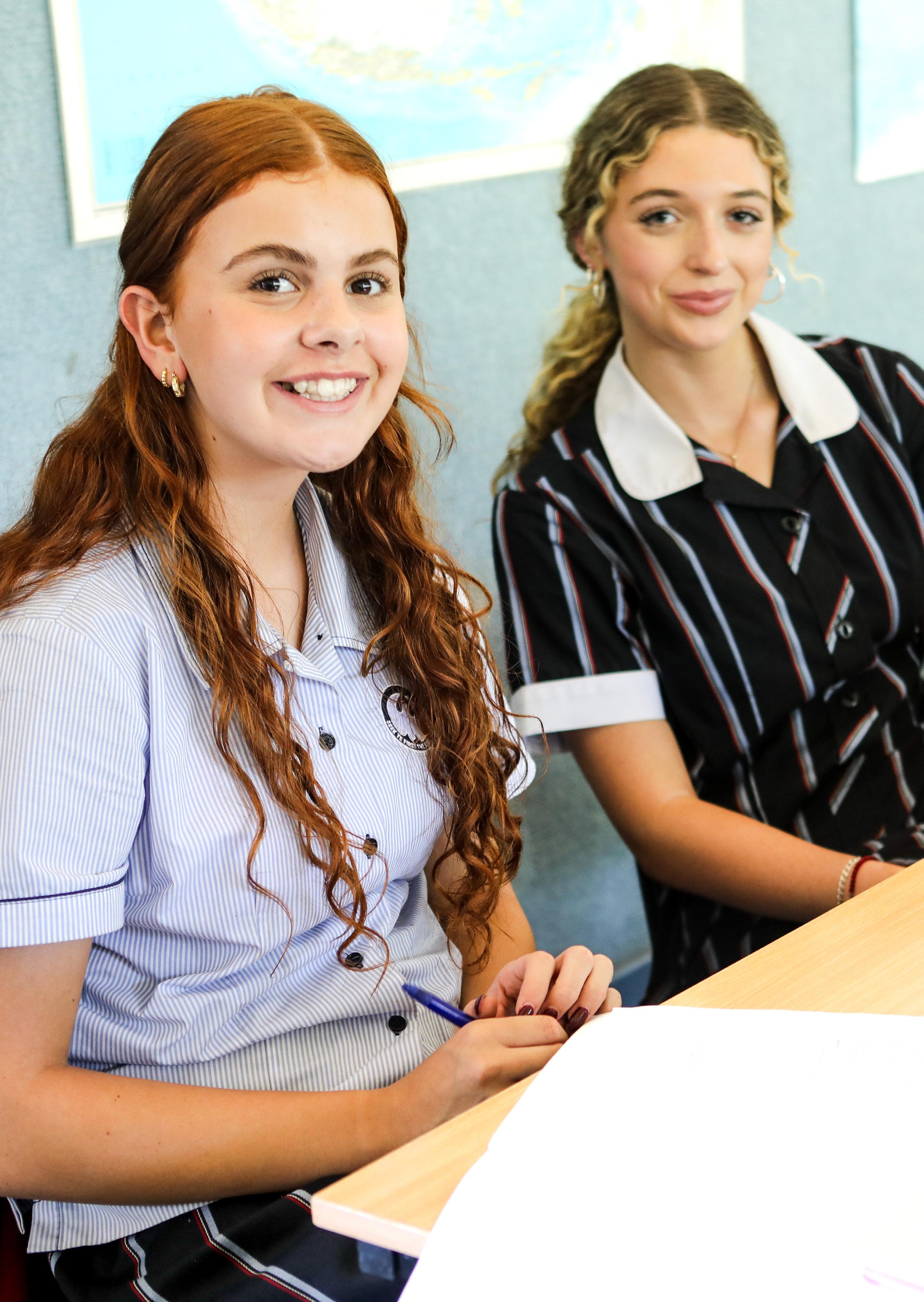

Healthy Living
Ever wondered how the choices you make today shape your future health and the wellbeing of your community? This unit empowers you to explore critical health issues facing young people, from nutrition and mental wellbeing to road and cyber safety, drug use, and fostering respectful relationships. We’ll delve into the real-world impacts of these issues, uncovering potential health consequences for individuals and how they’re reflected in broader population health. You’ll become a savvy health advocate by evaluating effective promotion strategies, dissecting case studies, and honing your assertive communication skills through engaging role-plays, videos, or podcasts. Get ready for hands-on learning too! You’ll be cooking up healthy meals, moving your body with Just Dance and physical games, and stepping into the shoes of a responsible road citizen at an interactive road safety workshop.
Acceleration
It may be possible for highly capable and motivated students to accelerate to complete Units 1 and 2 VCE Health and Human Development in Year 10. This will be subject to criteria and minimum standards achieved in Year 9.
VCE Health and Human Development (Whole year: 2 units)
Unit 1 -
Understanding health and wellbeing
Looks at health and wellbeing as a concept with varied and evolving perspectives and definitions.
Unit 2 -
Managing health and development
Investigates transitions in health and wellbeing, and development, from lifespan and societal perspectives.
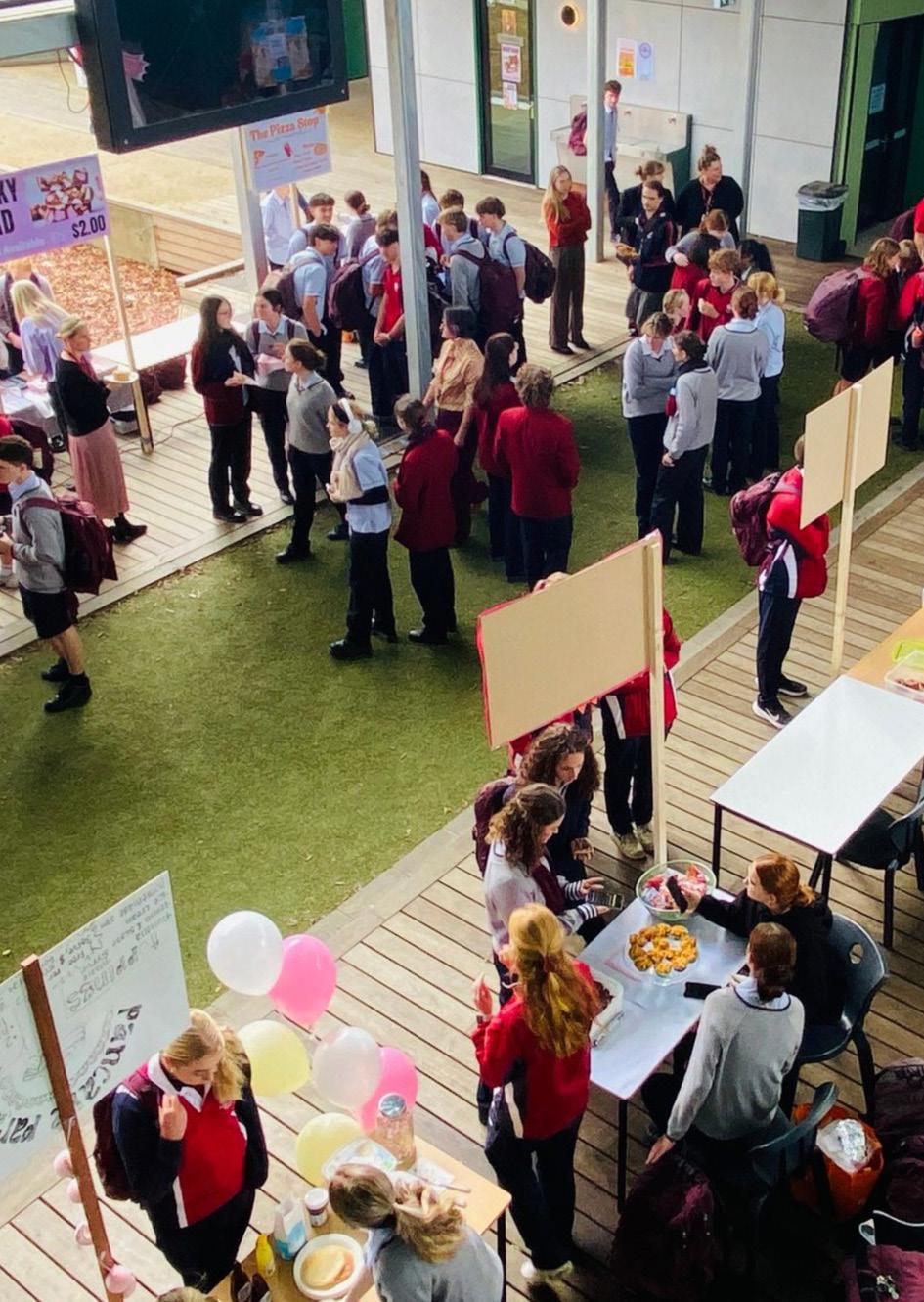

Running a Small Business (1 unit)
Humanities
Develop an understanding of the challenges and rewards that come from owning and operating a small business.
Working in collaboration with others, students will plan a schoolbased business, using market research to enable them to make sound business decisions to maximise their success.
After operating their business, students develop personal finance skills such as budgeting and goal-setting to help them prepare for the future.
This unit provides a suitable pathway for VCE Business Management and/or VCE Accounting.
Law and Economics (1 unit) Humanities
This unit is designed for students with an interest in democracy, justice and impact of consumer choices. Students develop a stronger understanding the structures and processes that enable society to function, prosper and protect the principles of justice. Students develop a deeper understanding of Australia’s democracy, system of parliament and how Australians can influence law reform, including within referendums and the persuasion of political cartoons. Through real legal cases students examine Australian legal system including how laws are made, how a legal case is determined and explore the impact that miscarriages of justice have on society. Students gain an understanding of what constitutes an economic problem, how to build a share portfolio and investigate economic factors that indicate the strength of a country’s economy. This unit provides good preparation for VCE Legal Studies, VCE Economics and VCE Global Politics.
Acceleration
It may be possible for highly capable and motivated students to accelerate to complete Units 1 and 2 VCE Accounting, Business Management and Legal Studies in Year 10. This will be subject to criteria and minimum standards achieved in Year 9.
VCE Business Management (Whole year: 2 units)
Humanities
Unit 1 -
Planning a business
Students look at how and why business ideas are created, the personal motivations behind starting a business and the characteristics that allow managers and entrepreneurs to operate successful businesses.
Unit 2 -
Establishing a business
Students examine the legal and financial considerations that must be satisfied to establish a business. They investigate the essential features of effective marketing and consider the best way to meet the needs of the business in terms of staffing, recruitment and managing employees.
VCE Legal Studies (Whole year: 2 units) Humanities
Unit 1 -
The presumption of innocence
Students investigate key concepts of criminal law and apply them to scenarios to determine whether an accused may be found guilty of a crime. Students will develop an appreciation of the way legal principles and information are used in making reasoned judgments and conclusions about the culpability of an accused. Students also develop an appreciation of how a criminal case is determined, and the types and purposes of sanctions. Students apply their understanding of how criminal cases are resolved and the effectiveness of sanctions through consideration of recent criminal cases from the past four years.
Unit 2Wrongs and rights
Students investigate key concepts of civil law and apply them to scenarios to determine whether a party is liable in a civil dispute. Students explore different areas of civil law, and the methods and institutions that may be used to resolve a civil dispute and provide remedies. They apply knowledge through an investigation of civil cases from the past four years. Students also develop an understanding of how human rights are protected in Australia and possible reforms to the protection of rights, and investigate a contemporary human rights issue in Australia, with a specific focus on one case study.

VCE Accounting (Whole year: 2 units) Humanities
Unit 1 -
The role of accounting in business
Students look at what it takes to start business and explore how accounting plays a critical role in determining whether a business fails or succeeds. They examine the value of accounting information for a range of stakeholders who rely on accurate financial reports to make informed decisions. Students gain hands-on experience by recording financial data and preparing accounting reports for a service business, and build practical skills they can apply in real-world business contexts.
Unit 2 -
Accounting & decision-making for a trading business
Students extend their understanding of the accounting process with a focus on trading businesses, highlighting the role of managing inventory, accounts payable and receivable, and non-current assets. Students analyse key areas of business performance and explore how financial and non-financial information can be used to forecast outcomes, set budgets, and evaluate the impact of different business strategies. Through this process, they develop informed recommendations to help owners make better decisions and improve the overall performance of the business.



Japanese (Whole year: 2 units)
Prerequesite: Year 9 Japanese
Equip yourself to become a global citizen with proficient Japanese language skills and a deep intercultural understanding. The Year 10 Japanese course explores various aspects of everyday life, such as milestones, languages, fast food, shopping, school trips, part time jobs, and future aspirations.
Throughout the year, students engage in communication with peers from our sister school, Naga High School in Japan, through digital and written correspondence. This pen-pal style interaction enables our students to practice their language skills and build connections with Japanese students of the same age. Students also have the chance to participate in live video chats with Japanese high school students, allowing for real-time cultural exchange and deeper intercultural understanding.
Sharing life experiences with their Japanese counterparts helps solidify their purpose in learning the language. Year 10 Japanese students have several opportunities to immerse themselves in Japanese culture through real-life experiences. These include a long-term exchange program for Year 10 students, and a shortterm trip to Japan for Year 10 or 11 students. In addition, during their Year 10 or 11 studies at Christian College, there is a visit from our sister school. During this time, students are able to host a Japanese student at their family home, and also participate in classroom activities to interact with the group of Japanese students. Exchange programs are subject to current travel regulations.
Acceleration
It may be possible for highly capable and motivated students to accelerate to complete Units 1 and 2 VCE in Year 10. This will be subject to criteria and minimum standards achieved in Year 9.
VCE Indonesian/VCE Japanese (Whole year: 2 units)
It is possible for selected students to study VCE Units 1 & 2 Indonesian or Japanese in Year 10.
At VCE level, students will develop and extend their skills in listening, speaking, reading, writing and viewing in the language of choice, exploring a range of contemporary themes and topics.
Students interpret and create a variety of texts related to careers, social media and youth issues and master key vocabulary and grammar structures essential for continuing to Units 3 & 4.
Indonesian (Whole year: 2 units)
Prerequesite: Year 9 Indonesian
In an increasingly globalised world, learning a language can develop highly valued interpersonal skills for cross cultural contexts. Year 10 Indonesian provides a foundation of language skills for VCE and exciting opportunities for further study, work and travel opportunities in SE Asia where Indonesian and Malay are extensively spoken. Journey through time from ancient kingdoms to today’s modern emerging nation. Prepare for travel and a hosting experience for the Lombok twin school exchange and explore topics of Indonesia’s city and village life and marketplaces. Following an Indonesian cooking workshop, shop for spices and prepare your own traditional meal for family and friends. Learning Indonesian can be both challenging and fun, rewarding learners with a deeper understanding of language, culture and communication.
This course consists of the following topics studied over the course of the year:
1. Travel and student exchange
2. Traditional Indonesian cooking
3. Village and city life
4. Ancient kingdoms and modern Indonesia
Students may prepare for travel and a hosting experience with the Lombok twin school exchange, engaging in real-world cross-cultural exchange with students from our sister school, SMA Negeri 2 Mataram.
Exchange programs will be subjected to international and Australian Government travel regulations at the time.
Time Impact: 1 day - excursion


Designed with aims:
• To improve student engagement and agency in learning.
• Support pathways for music students and to inspire for any of:
• music for enjoyment - creative expression and passion,
• music pathways at SS and/or
• music pathways beyond high school - for life or further study
(These subjects can be taken as stand-alone units or as 2 units in sequence)
1 Music
Sound Explorers: A journey of personal musical exploration
This subject aims to give students an overview of potential musical pathways in VCE during Year 11 and 12 and career pathways beyond the classroom. Students can choose this subject for one semester in either Semester 1 or 2, or over both semesters for the year.
In Semester 1, Sound Explorers students will:
• Form bands/ensembles, rehearse, and present music to an audience.
• Explore and compose their own contemporary song or classical music piece, using appropriate tools such as Logic, Ableton and/or MuseScore.
• As soloists or in their groups/ensembles/bands, analyse a contemporary song or classical work, learn it, and make it their own through a class performance.
• Learn the nuts and bolts of pitch and rhythm, in classical or contemporary styles, and use their knowledge in a range of musical environments.
Semester 2 Music
Sound Explorers 2: Musical Inspirations
As musicians, it is often the work of others that inspires us to grow or try new things. This unit is an opportunity for students to find inspiration and learn about what their favourite musicians, artists or bands have achieved. This unit will provide them with the opportunity to consider their own performance skills and explore new creative impulses.
In Semester 2, Sound Explorers students will:
• Perform as a group and soloist, develop stage craft, and learn to maximise the impact of their playing for an audience.
• Develop a set or programme for their chosen audiences. Organise a performance/gig and bring it to life.
• Personal project - choose to compose, arrange, or improvise music to extend their skills.
• Case study and presentation - find their heroes (past or present), identify why they inspire them as an artist, and investigate what they did to achieve success.
• Hear from industry experts and practicing artists about their stories, careers, and inspirations.
• Continue to develop their pitch and rhythm skills and apply these skills in a range of musical environments.

It may be possible for capable and motivated students to accelerate to complete Units 1 and 2 VCE Music in Year 10. This will be subject to criteria and minimum standards achieved in Year 9.
VCE Music (Whole year: 2 units)
Units 1 & 2
VCE Music is based on active engagement in all aspects of music. Students rehearse, perform, and develop their skills as musicians across a broad range of contexts and activities. Students will rehearse and perform in small groups (rock groups, wind/brass/string ensembles/vocal groups) under the guidance of an ensemble teacher. They will also experience large group performance and as well develop their performance craft as soloists in performance classes and workshops. Opportunities to perform at community and college events will also be offered to students to develop their skills and confidence as performers.
Class activities include listening to a broad range of music, students will have the opportunity to explore, reflect on and respond to the music they listen to, create and perform. They analyse and evaluate live and recorded performances, and learn to incorporate, adapt and interpret musical practices into their own practice.
Students also develop knowledge and skills to compose, arrange, interpret, reimagine, improvise, recreate, and critique music. In this study students are offered a range of pathways according to their instrument and areas of musical interest from classical to contemporary performance genre.
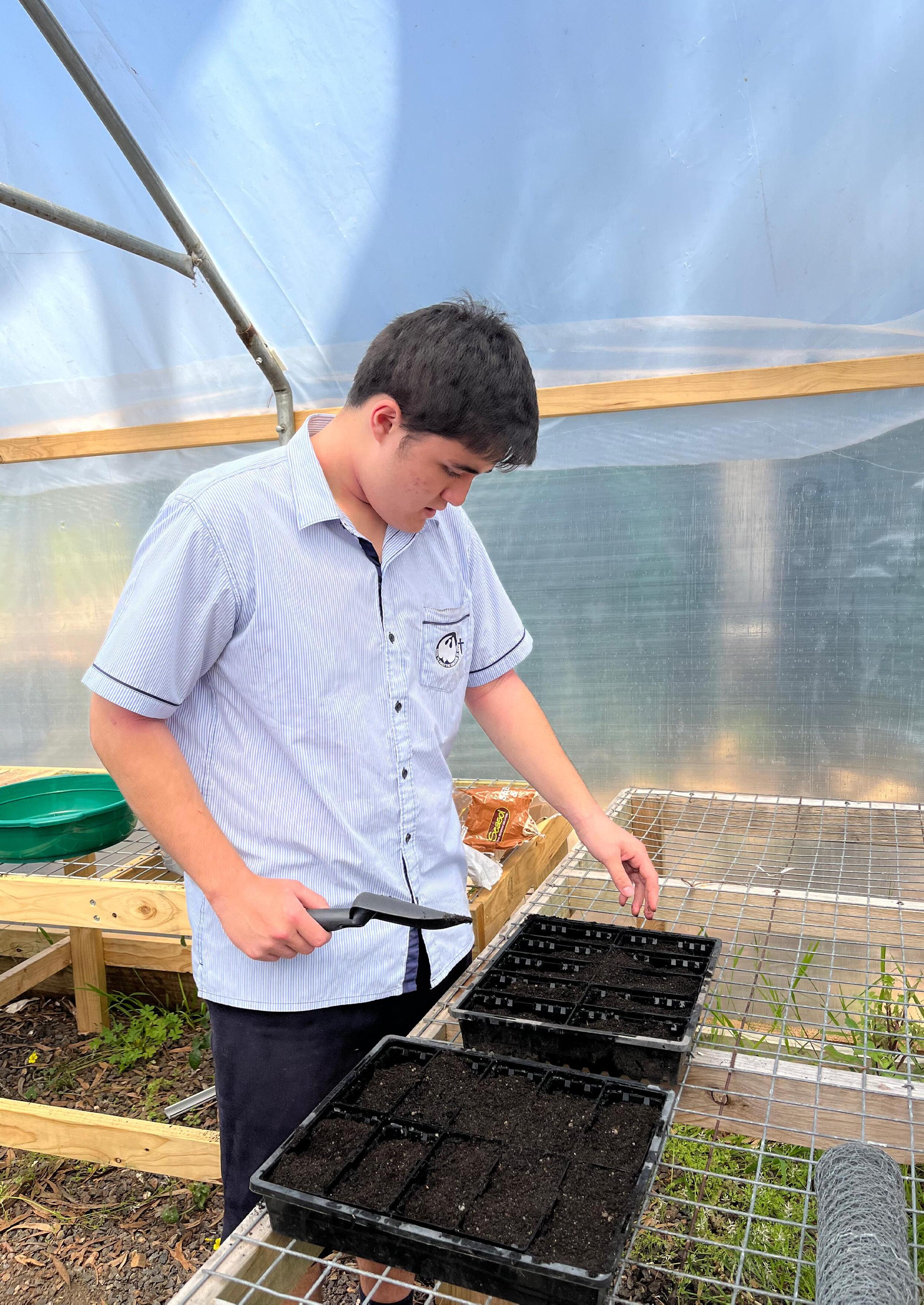

Vocational Pathway (Whole year: 2 units)
This unit allows students on a VCE and VCE VM, to study a two-year VET subject to obtain a Certificate II or III TAFE qualification by the end of Year 11.
Some examples from the many VET courses on offer are: $
• Equine Studies
• Electrotechnology (priority to Year 11 and 12 students)
• Plumbing
• Engineering
• Make up
• Screen and Media
• Animal Studies
• Carpentry
• Agriculture
• Beauty
• Hospitality
• Sport and Recreation and more
For more information regarding Vocational pathways, including;
Senior Vocational Educational Training (VET)
Structured Workplace Learning (SWL)
School Based Apprenticip and Training (SBAT)
Note: Childcare, Electrotechnology and Community Services are offered from Year 11 only.
VET students complete two periods a week off campus at their chosen course venue such as The Gordon. The Geelong region VET Network provides transport for students to their designated course/venue. It is then up to parents to pick them up at the end of the day.
Time impact: 1 week
Structured Workplace Learning (SWL)
Fees
• VET studies incur an additional fee for study payable to the provider via your College Fee account.
• VET fees include a course cost and additional ancillary fees where applicable. Please note, the Government does not subsidise the VET cost for independent schools so fees are payable by the family, added to their fee account.
• VET fees are updated annually and, in 2025, ranged from $1570 - $3460 depending on the course, inclusive of ancillary fees
• Christian College contributes a $500.00 subsidy toward the cost of a completed VET course. This will be credited to the student’s tuition fee account in two instalments of $250.00 – one in April and a second in August. The Geelong region VET Network will provide the transport for students to travel to the Registered Training Organisation (RTO).

These pages and worksheet are to support you in your considered subject selections in the year 10 academic program. Please note that your final subject choices are to be entered online, via an email link sent to your student email address.
English (Each option = 2 units)
Core Skills English
General English
Mathematics (Each option = 2 units)
Core Skills Mathematics
Science (Select 2 units from the options below)
Bodies and Motion
Chemistry of Life
Ecology, Biodiversity and Fieldwork
Worldview (1 unit minimum) in Semester 1 or 2
Christian Education
Geography
History’s Greatest Hits
Experiential (1 unit minimum) in Semester 1 or 2
Drama
Outdoor Education
PE: Coaching and Officiating
Art, Technology and Design
Art Making and Exhibiting
Food Studies
Media
Product Design: Materials
Product Design: Textiles
Digital Technologies
Computing
Health
Healthy Living
Humanities
Law and Economics
Running a Small Business
Languages Music
Indonesian Japanese Sound Explorers 1
Vocational Pathways
General Mathematics
General Mathematics (Essentials)
Gene Science
Mind and Body
Test Your Metal
Our World: First Nations
Our World: Local Community
Politics and Society
PE: Sport and Exercise Performance
PE: Sport and Recreation
VCE Drama
Systems Engineering Visual Communication Design
VCE Art Making and Exhibiting VCE Food Studies
Mathematical Methods
VCE Biology
VCE Environmental Science
VCE Psychology
VCE Geography
VCE History
VCE Text and Traditions
VCE Outdoor and Environmental Studies
VCE Physical Education
VCE Media
VCE Product Design
VCE Systems Engineering
VCE Visual Communication Design
Vocational Education and Training (VET) (2 units) Including Unit 1 Work Related Skills
Applied Computing
Health and Human Development
Accounting
VCE Legal Studies
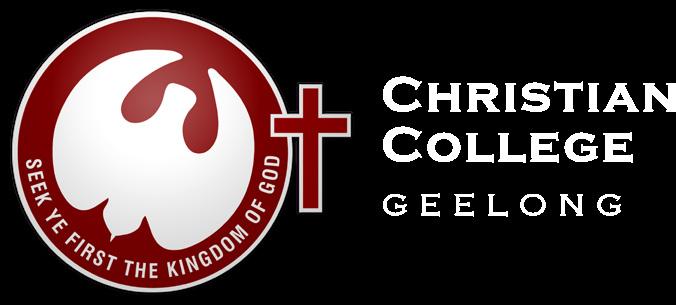
Williams House Kindergarten
39 Broughton Drive, Belmont 3216
Tel. 03 5241 3556
Butterfield House Kindergarten
240 Great Ocean Road, Torquay 3228
Tel. 03 5264 6803
Junior School - Belmont
39 Broughton Drive, Belmont 3216
Tel. 03 5241 1565
Middle School - Highton
18 Burdekin Drive, Highton 3216
Tel. 03 5241 1899
Senior School - Waurn Ponds
135 Pigdons Road, Waurn Ponds 3216
Tel. 03 5241 1577
Surf Coast Campus
248 Great Ocean Road, Torquay 3228
Tel. 03 5244 8799
Bellarine Campus
40 Collins Street, Drysdale 3222
Tel. 03 5253 2998
Back Creek Farm
Midland Hwy, Scotsburn
Tel. 03 5341 2051 www.christiancollege.vic.edu.au